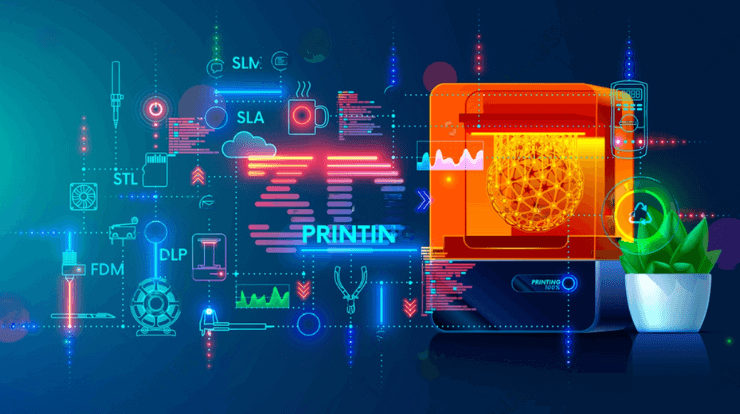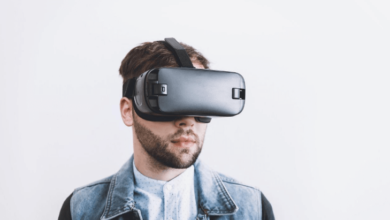Are there specific materials preferred for 3D printing in automotive customization in Dubai?

The world of automotive customization in Dubai is a vibrant and dynamic landscape where innovation and luxury intersect. 3D printing technology has become a key player in this arena, offering a wide range of materials that cater to the unique requirements of customized automotive parts.
In this exploration, we delve into the specific materials preferred for 3D printing in automotive customization in Dubai, considering factors such as durability, aesthetics, and performance.
1. High-Performance Polymers for Durability:
High-performance polymers, such as ABS (Acrylonitrile Butadiene Styrene) and Nylon, are preferred choices for 3D printing customized automotive parts in Dubai due to their durability and resistance to various environmental conditions.
These materials provide the strength required for components subjected to stress, such as interior and exterior trims, without compromising on the aesthetics. ABS, known for its impact resistance, is often used for producing robust and long-lasting automotive prototypes and parts.
2. Carbon Fiber-Reinforced Composites for Strength:
Carbon fiber-reinforced composites offer a perfect blend of strength and lightweight properties, making them ideal for producing high-performance automotive components.
Dubai’s automotive enthusiasts appreciate both performance and style, and carbon fiber-infused materials, such as Carbon Fiber Reinforced PLA (Polylactic Acid) or Nylon, provide the strength needed for structural components while adding a sleek and modern aesthetic to the customized parts. These materials are commonly employed for applications like aerodynamic components and interior trims.
3. Metal Alloys for Functional Components:
When it comes to functional components that require both strength and precision, metal alloys take center stage in 3D printing for automotive customization in Dubai. Titanium, aluminum, and stainless steel are popular choices for producing engine components, brackets, and other metal parts.
The high strength-to-weight ratio of these materials aligns with the performance-driven automotive culture in Dubai, where every detail matter in both aesthetics and functionality.
4. Transparent and Translucent Resins for Aesthetics:
In the realm of automotive customization, aesthetics play a pivotal role. Transparent and translucent resins, commonly used in Stereolithography (SLA) or Digital Light Processing (DLP) 3D printing technologies, are favored for creating visually striking and aesthetically pleasing automotive components.
These materials are often utilized for producing clear lenses, lighting elements, and interior design elements, allowing for the seamless integration of both form and function in customized vehicles.
5. Polyamide (PA) for Versatile Applications:
Polyamide, known for its versatility, is a material of choice for various applications in automotive customization in Dubai. Whether for producing interior components, functional prototypes, or intricate detailing, Polyamide’s flexibility, durability, and resistance to impact make it suitable for a wide range of automotive parts.
Selective Laser Sintering (SLS) technology is commonly employed to 3D print Polyamide components with high precision and detail.
Read also: Strengthening Your Online Security: Protecting Your Personal Data from Cyber Threats
6. Biocompatible Materials for Interior Applications:
In an era where sustainability and eco-consciousness are gaining prominence, biocompatible materials have found their place in automotive customization in Dubai. PLA-based materials, derived from renewable resources such as cornstarch, are used for interior applications like dashboard trims and non-structural components. These materials offer a balance between functionality and eco-friendliness, aligning with the evolving preferences of Dubai’s automotive enthusiasts.
7. Flexible TPU for Soft-touch Components:
For parts requiring flexibility and a soft-touch feel, Thermoplastic Polyurethane (TPU) is a preferred material. TPU is often used in 3D printing applications for producing customized grips, gaskets, and other components where a certain degree of flexibility and elasticity is desired.
The ability to tailor the hardness of TPU allows for the creation of parts that not only look good but also feel comfortable, enhancing the overall user experience in customized vehicles.
8. Multi-material Printing for Complexity:
As automotive customization in Dubai embraces intricate designs and complex geometries, multi-material 3D printing becomes a valuable technique. This approach allows for the simultaneous use of different materials within a single print job, enabling the creation of parts with varying properties.
For example, combining rigid and flexible materials in a single component can provide both structural support and tactile comfort, contributing to the overall aesthetics and functionality of customized automotive parts.
Conclusion:
In conclusion, the specific materials preferred for 3D printing in automotive customization in Dubai are chosen based on a careful balance between durability, aesthetics, and functionality.
High-performance polymers, carbon fiber-reinforced composites, metal alloys, transparent and translucent resins, Polyamide, biocompatible materials, flexible TPU, and multi-material printing techniques all contribute to the diverse palette available for creating customized automotive parts that meet the high standards set by Dubai’s automotive culture.
As technology continues to advance and new materials emerge, the landscape of 3D printing in automotive customization in Dubai is poised to evolve, offering even more possibilities for pushing the boundaries of innovation and luxury in customized vehicle design.




